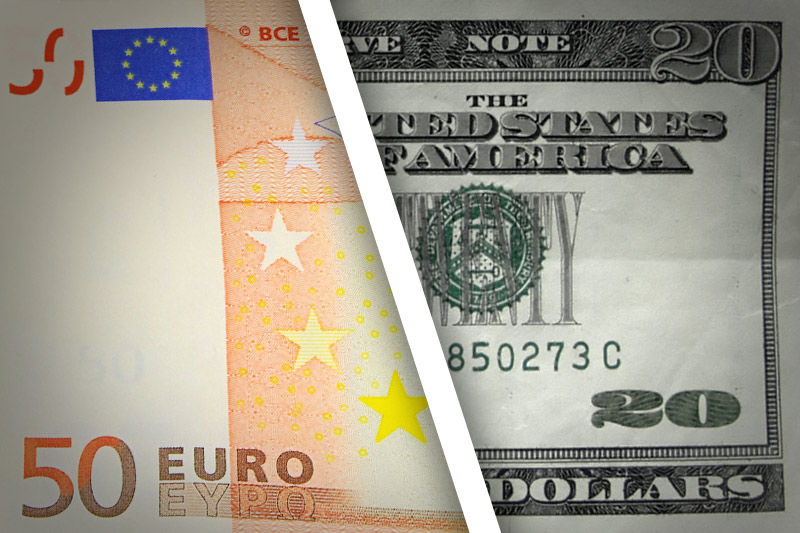Investing.com -- EUR/USD fell mildly on Monday extending its recent slump, as fears of a Greek exit from the European Union continued to weigh on the currency pair.
The euro lost 0.0047 or 0.42% to 1.1155 against the dollar in U.S. afternoon trading, posting its fourth consecutive losing session. The losses, however, have been minimal during the period as the euro still remains above its level of 1.1132 on April 29 when it appreciated by more than 1.35% against the American dollar. The pair remained in a tight range of 1.132 on the low end and a peak of 1.1207 on Monday, as it moved steadily lower throughout the session.
In Greece, government officials eased concerns that it could default on its obligations as early as this week by confirming that it has started making payments on a €750 million loan due to the International Monetary Fund on Tuesday. The payment stemming from a 2010 bailout from the IMF is Greece's largest of the month.
In Brussels, meanwhile, there are still concerns that Greece could default on its sovereign debt and leave the EU following the conclusion of lengthy negotiations on Monday. While Eurogroup chair Jeroen Dijsselbloem applauded Greece's renewed efforts at accelerating negotiations, he emphasized that more time is needed to reach a comprehensive agreement. Greece, however, is running out of time to strike a deal with its troika of creditors for a critical stimulus package needed to stave off bankruptcy. In late-June, a four-month extension from Greece's euro zone creditors dubbed the "Master Financial Assistance Facility Agreement," otherwise known as the Greek bailout, will expire.
"The Eurogroup today took stock of the state of play with the ongoing negotiations between Greek authorities and the institution. We welcomed the progress that has been achieved so far. We note the reorganization and streamlining of working procedures has made an acceleration possible and has contributed to a more substantial deal. At the same time, we acknowledged that more time and effort are needed to bridge the gaps on the remaining open issues," the Eurogroup leaders said in a statement.
European Union commissioner Pierre Moscovici said while significant convergence had been achieved on some issues such as determining rates for Value-Added Taxes and on how to handle non-performing loans, the sides still remained apart on determining reform measures in the Greek labor market and with its pension system.
In the United Kingdom, the Bank of England kept its main rate steady at 0.5% and the size of its bond portfolio constant at 375 billion pounds days after prime minister David Cameron's sweeping victory in the British general elections. GBP/USD rose 0.97% to 1.5588, while EUR/GBP fell 1.31% to 0.7157.
In the U.S., yields on 30-Year Treasuries soared to 3.03% its highest level since late-November. The yield curve between 5-Year and 30-year Treasuries also reached its steepest level since late last year.
Also, Federal Reserve of San Francisco president John Williams reiterated on Monday that a June rate hike is still on the table after a mixed U.S. jobs report on Friday, when the economy added 223,000 nonfarm jobs for the month of April and the unemployment rate ticked down to 5.4%.
"With our decision, every meeting is on the table," Williams told CNBC. "The real question mark is the inflation mandate, we're trying to get 2% inflation. We haven't seen that in a number of years. There are number of factors holding inflation down right now including the stronger dollar and the fact that the economy is not quite at full strength."
The U.S. Dollar Index, which measures the strength of the greenback versus a basket of six other major currencies, gained 0.17% to 95.11.
